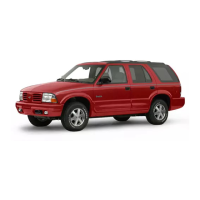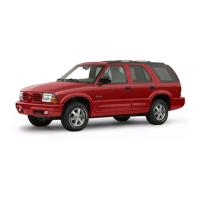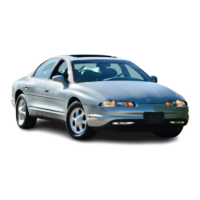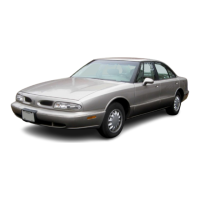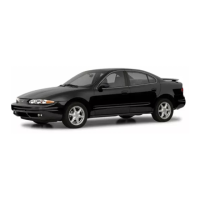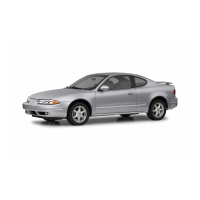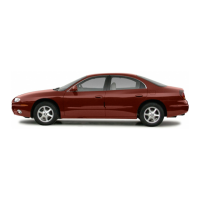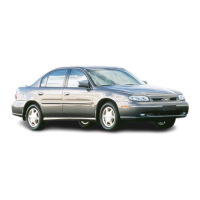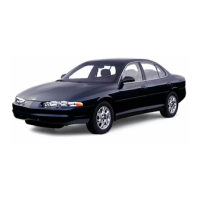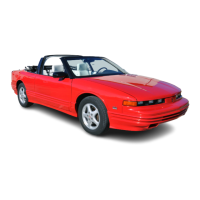Brake
Wear
Your Oldsmobile has four-wheel disc brakes.
Disc brake pads have built-in wear indicators that make
a
high-pitched warning sound when the brake pads are worn
and new pads are needed. The sound may come and
go
or
be heard all the time your vehicle is moving (except when
you are pushing on
the
brake pedal firmly).
The brake wear warning sound means that soon
your brakes won’t work well. That could lead to
an accident. When you hear the brake wear
warning sound, have your vehicle serviced.
NOTICE:
Continuing
to
drive with worn-out brake pads
could result in costly brake repair.
Some driving conditions or climates may cause a brake
squeal when the brakes are first applied or lightly
applied. This does
not
mean something is wrong with
your brakes.
Properly torqued wheel nuts are necessary to help
prevent brake pulsation. When tires are rotated, inspect
brake pads for wear and
evenly
torque wheel nuts in the
proper sequence to
GM
specifications.
Brake linings should always be replaced as complete
axle sets.
See “Brake System Inspection”
in
Section
7
of
this manual
under
Part
C
“Periodic Maintenance Inspections.”
Brake Pedal Travel
See your retailer
if
the brake pedal does not return to
normal height, or
if
there is a rapid increase in pedal
travel. This could be a sign of brake trouble.
Brake Adjustment
Every time you make
a
brake stop, your disc brakes
adjust for wear.
6-28

